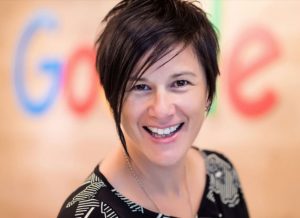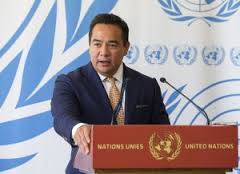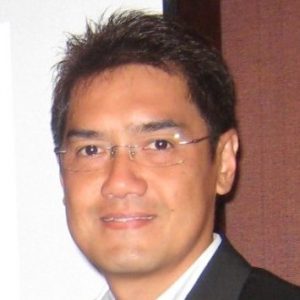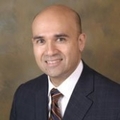The Next Generation
Over the last few weeks, I provided new information on the Macanese Diaspora and suggested the potential for collaboration that currently exists with Macau. In this article, I conclude the series by highlighting members of the next generation and their familial ties to the MSAR. In future articles we will focus on the development of different communities, beginning with Hong Kong where the descendants of many Macanese families once settled.
Readers will recall that the Macanese Diaspora is essentially a global network for culture and business exchange, a network that currently includes about 1.5 million members in 35 countries. I also noted that the gathering of historical information from this network has the benefit of stimulating interest in developing cultural and commercial links, which has implications for on-going engagement between Macau and the Diaspora in the future.
I also provided details about the global Macanese community, describing specific age groups, the size of the population and families, their cultural origins and identifies, and data about their use of technology. Past surveys also revealed that many second and third generation professionals living in Diaspora countries are interested in Macau’s future. But who are these younger Macanese, and what are their connections to Macau?
Let us look briefly at four representatives from Australia, Switzerland, Macau, and San Francisco. Their careers touch many different fields, including technology, diplomacy, education, medicine, and business. In each case, the ties to Macau have survived despite time, distance, and cultural separation.

Leonie (Castro, d’Aquino) Valentine – Managing Director, Sales & Operations, Google Hong Kong
Leonie Valentine is the Managing Director of Sales and Operations of Google Hong Kong. Previously she was the Director of Customer Experience for Google Asia Pacific. Before joining Google, Ms. Valentine was the Executive Vice President of Customer Service and Operations at CSL Limited, also in Hong Kong. Earlier, she was the Chief of Staff for Telstra International Group, the largest telecommunications company in Australia and New Zealand, where she was in charge of managing Telstra Corp’s external business growth.
Ms. Valentine was born in Maffra Australia, but has family roots in Shanghai, Hong Kong and Macau. One of her earliest relatives was Filomena Augusta Manaliza Castro. According to a family history and genealogical records, she was born in Macau in the early 1830’s, was married in Hong Kong around 1853, and died in Shanghai around 1920. Her oldest son, Carlos Maria Castro (1865-1928), was a prominent figure in early Hong Kong. There he worked for the British firm Lane Crawford Ltd, a general goods dealer, and served as a linguist. Castro is reported to have spoken twelve Chinese dialects, as well as Filipino, English, Portuguese, French, Spanish, Hindu, Malay, and German.

Keith (da Luz, Ribeiro) Harper – United States Ambassador – United Nations Human Rights Commission
Appointed by U.S. President Barack Obama, Mr. Harper is the U.S. Ambassador to the United Stations Human Rights Commission, and the former US Ambassador to Switzerland (2013). Previously he was a partner with Kilpatrick, Townsend, and Stockton, LLP, a global legal practice in Washington, D.C., where he specialized in litigation, appeals, civil actions, and American Native American issues. Mr. Harper also served as a member of the Obama-Biden Presidential Transition Team on Energy and Environment policy in 2012, and taught at Catholic University Columbus School of Law and at American University Washington College of Law.
Mr. Harper was born in San Francisco, with family from Hong Kong and Macau. His great-grandmother was Guilhermina Maria Ribeiro (1885-1973), a member of a prominent Macau family. Her descendants settled in Macau for four generations (since 1780) until moving to Hong Kong in 1908. Gilhermina’s daughter, Elsa Maria Gutierrez (1921-2014), attended school in Hong Kong until migrating in 1958 to San Francisco.
 Dr. Manuel Noronha – Associate College Master, Chief of Students, Moon Chun Memorial College, University of Macau.
Dr. Manuel Noronha – Associate College Master, Chief of Students, Moon Chun Memorial College, University of Macau.
As the chief officer to College Master Dr. Kit Thompson OBE, who is also Vice President of the European Chamber of Commerce in Macau, Dr. Noronha’s role is to develop the collegiate community and encourage leadership skills among student groups. He is also a university instructor, and provides supervision and leadership training, as well as advises students on academic and personal issues. Dr. Noronha received his doctorate in Global Studies, Magnum Cum Laude, at the University of Saint Joseph in Macau, and wrote his dissertation on language learning identities among ethnic groups in Macau. He is a specialist on the history and development of “Maquista”, Macau’s patois.
Dr. Noronha was born in Hong Kong, and is a descendant of Macanese and Chinese families. His grandmother on his mother’s side, Teresa Fátima Ip (1921 – ?) was born in Zhongshan in Guangdong province and married Luís Gonzaga da Silva (1905 – 1958) in Macau in 1941. Dr. Noronha’s great grandfather on his father’s side, Joaquim dos Passos Noronha (1871 – >1901), was born in Macau, but later married and settled in Hong Kong. As was the norm in the community, family members go back at least five generations in Macau.
 Dr. Mark (Marques, Alvares) Savant, MD – Founder, Savant Medical Group, Inc., San Francisco, California
Dr. Mark (Marques, Alvares) Savant, MD – Founder, Savant Medical Group, Inc., San Francisco, California
In addition to specializing in Internal Medicine, Dr. Savant is the Athletic Team Physician at the University of San Francisco, and a consulting physician to several local web sites. He attended the Medical College of Wisconsin and completed his residency at Santa Clara Valley Medical Center in San Jose, California. He then served on the Faculty of the Division of General Internal Medicine at St. Luke’s-Roosevelt Hospital in New York City, and was also a clinical instructor at Columbia University’s College of Physicians and Surgeons.
Dr. Savant carries on a long family tradition in medicine. Two members of the Alvares family on his mother’s side made significant contributions in research and epidemiology. Joao Jacques Floriano Alvares was a doctor in the Medical School of Goa in 1849, who was later appointed Chief Medical Officer in Macau in 1872. Joao Alvares was later decorated by the Macau government for helping to stop a cholera epidemic in 1889. His cousin, Camilio Dionisio Alvares, was the director of the Laboratory of Clinical Analysis at St. Joseph’s Hospital in Lisbon. In this role, he was a pioneer in the detection of tropical diseases, and collaborated with other scientists in 1910 to isolate an Indian parasite that caused “Kala-Azar”, also known as “Black Fever”.
Conclusion
The inclusion of these short profiles, and the statistical results of recent surveys, could be viewed as going “against the grain” of common assumptions about the Macanese Diaspora. But the evidence seems clear. Survey results indicate that there are many speakers of Macau’s patois, that the size of many Macanese families is still large, and members remain connected in spite of generational divisions. We also have indications that younger Macanese are well positioned in professional fields, with a multitude of experience and expertise, and remain interested in Macau’s future.
Academic research usually does not include the personal details of individuals and their family histories, often because the information may not be considered relevant or is not well-known. This is evidently the case in Macau. As we learn more about the Macanese community and its historic role in Southeast Asia, however, the connections to Macau, even after five centuries, remain intact.
More Stories
Studies of China’s GBA: U.S. – Chinese Interdependence after the Pandemic
Colonial Journalism in 19th Century Macau and Hong Kong
Women and Cultural Boundaries in Macau